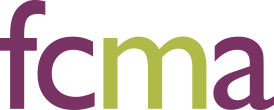Sustainable Improvement
Cliff Smyth, MS
When the New Year comes around many of us ask ourselves how can we live more how we want to - especially in what promises to be a challenging year. We all know that the process of making New Year resolutions has limitations - we often discover after a short while that we are not doing what we intended.
One place to start is to think about the goals themselves. In my coaching practice my aim is to help people develop s.m.a.r.t goals: simple, measurable, achievable, realistic, and time-related. Simple means that they don't involve too many parts, so that the intended action is clear to you, and even if one part of a change process doesn't come off, the whole goal is not undermined. Often it is valuable to break an overall goal into simple parts or steps, much as we often do with movements in Awareness Through Movement lessons. Measurable means that you know that you have done or achieved what you want to. It may be something that can be counted but also might be something that is felt. Research shows that people do better with goals like, 'being more fit and comfortable in my body' than 'lose 5 pounds'.
Achievable is important: it is important to set oneself up for success right at the beginning. Is this something you can possibly do? It is necessary to make sure it is also a realistic goal - the 'r' in 's.m.a.r.t' - and find out what is ultimately achievable further down the road. Realistic is something you can start doing right now - that you have the necessary skills and resources to do it. Time-related can include how often but also for how long. We all live busy lives, so working out how to create the time to do something new is important - sometimes it involves saying 'no' to something else. It might be as easy as doing less web surfing, and as hard as telling your supervisor you will be leaving work on time today.
One distinction we often make in the Feldenkrais Method is between what our private clients ultimately 'need' to help them function both more comfortably and in line with their goals, and what they can actually 'use' right away in the current Functional Integration® session. You can apply this for yourself: What is your ultimate goal? And what can you do for yourself right now? Your initial goals should be more about the latter. To get started one needs to do something, not everything.
Exercise is one of the areas in which many of us make New Year's resolutions. We all know the benefits of exercise for disease prevention - there is evidence for cardio-vascular conditions, cancer, dementia. Also mood, and even cognition, can be improved. Here is one area where Feldenkrais-thinking can be very useful. Remember how we start small in Awareness Through Movement lessons. This has at least two advantages: we are less likely to do something that is painful or risky for our bodies, and we can begin to sense ourselves more clearly. Then the movements can get larger, faster, and more complex with ease.
So, when beginning new exercise, choose an amount of activity at first that you know is achievable and realistic, and then increase slowly. For example, if you haven't been active at all, start by walking 10 to 15 minutes a day several days per week for a couple weeks, before increasing that to 20 or 30 minutes and maybe adding some more days. Likewise at the gym: start with light weights and slowly increase the weight and number of 'reps'. With more intense activities (weights, jogging, etc.), it is usually better to increase the intensity of the workout by about 10%, and maximum of 20%, every two weeks. At each step assess how it is going.
In terms of physical movement, awareness is critical. Don't just count the time and number of 'reps' but check in on how you feel. A little muscle achiness might be expected, outright and sustained pain is a source of information. Ask yourself: 'Do I feel good after exercising'? The kind of bodily awareness one gains from Awareness Through Movement classes can make a big difference in informing the development of a successful exercise program.
Finally, consistency is important. Research has shown that it often takes a month of regular practice to establish a new positive habit. So it is important to progress in a way that allows one to have sustainable improvement.
